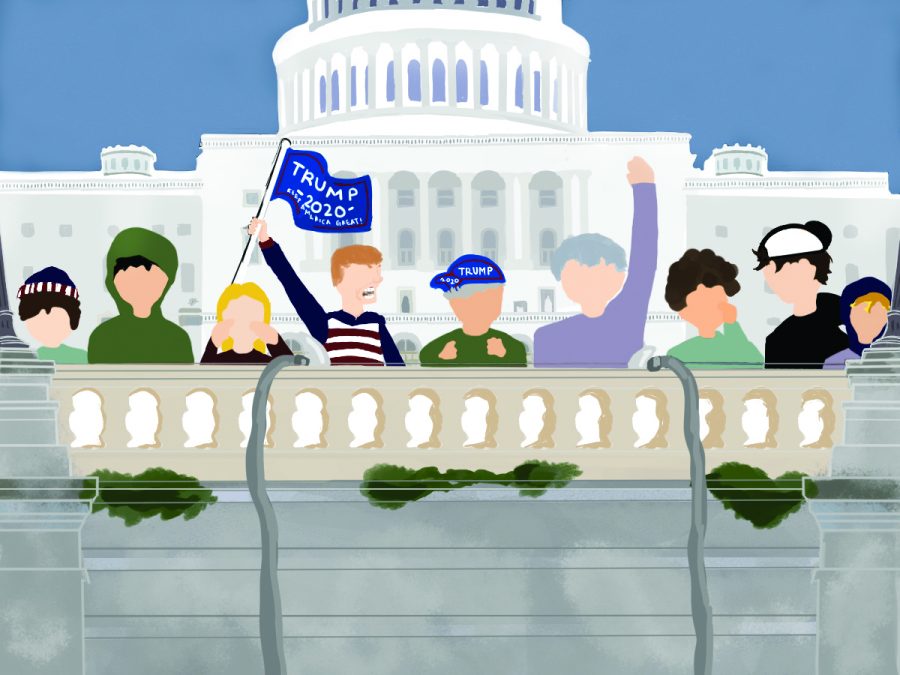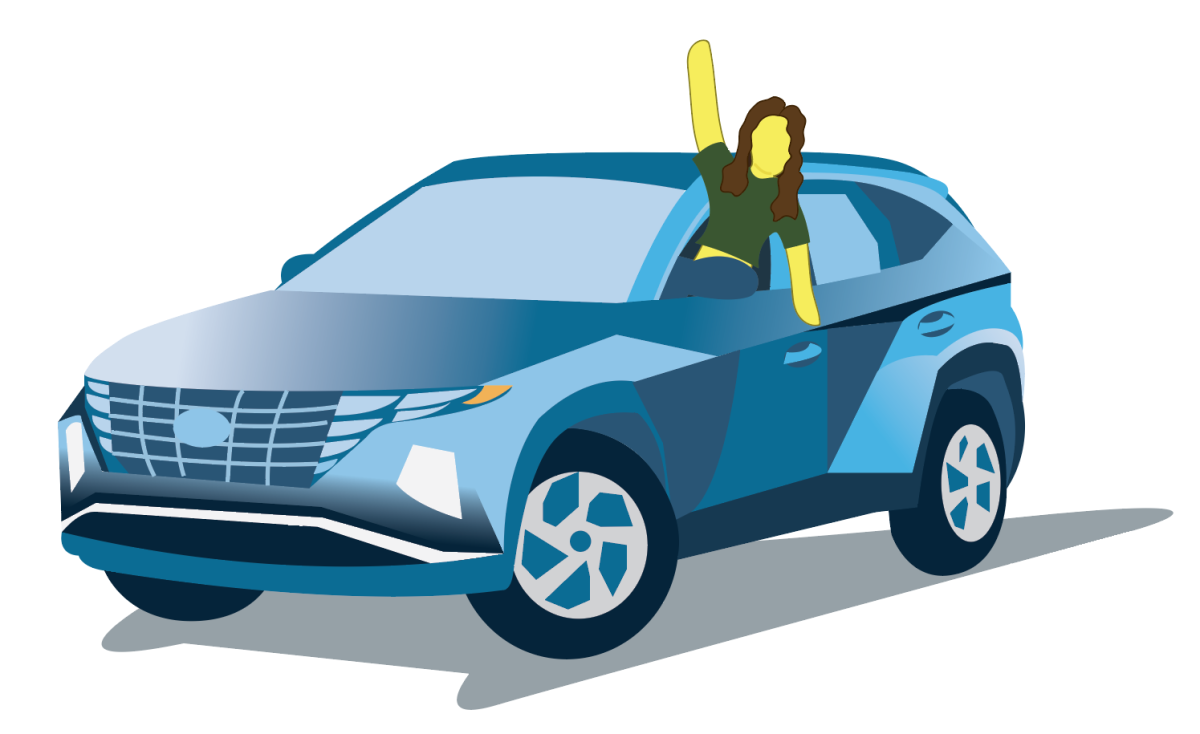The power of White privilege has taken center stage
April 14, 2021
Over 14,000 people were arrested in the Black Lives Matter protests. Tear gas, rubber bullets, pepper spray, and police shields were among the weapons used on BLM activists.
Just 230 people have been arrested at this point after they stormed the Capitol to protest the election results.
The police stood their ground for hours past the emergency curfew before they began to march Trump supporters back.
The contrast in police response illustrates conflicting power dynamics. On the one hand, the BLM movement is about injustices committed against marginalized citizens whose voices are silenced, sometimes violently, by the police who are supposed to serve and protect them too.
On the other hand, Trump supporters rose against an institution they believe don’t represent their choices anymore. In their minds, they’re free to exercise their rights as Americans and the police can’t stop them because the citizens “pay their salaries.”
This contrast isn’t coming out of left-field, or because of one presidency. Rather, it’s instilled into the very roots of white privilege.
All the warning signs of escalating violence were set in motion long before Trump took to the podium on January 6. His rally call was another expression of a domino effect centuries long. The elective officials are supposed to represent the citizens. When they don’t, the citizens must call them out. Especially if those citizens are white. That is their power. The police have a duty to stop citizens who overstep their rights. When they don’t, that is the privilege afforded to white lawbreakers.
Trump supporters could’ve been stopped quickly if the authorities had taken the threat of violence seriously. But the National Guard didn’t appear for hours despite publicized trespassing, government property damage, and intentions to hold Congress members hostage.
When the police finally pushed the protesters back, their delicate handling showed the biases of those in power. Trump’s “silent majority” were treated like reasonable people who had been riled up, angry but placeable, honest PTA parents who’d been misled into fantasies of election fraud.
White privilege is a powerful system in perspective. Domestic terrorism can be recast as patriotism. A violent insurrection is the second American Revolution. A slap on the wrist instead of handcuffs. After-the-fact damage control instead of a preemptive strike.
The macrocosm of this issue embodies a pyramid hierarchy of white privilege perpetuating white privilege. The insurrection wasn’t just an affirmation of privilege; it was a declaration of it, from the top down.
The people involved weren’t just telling the world that American Democracy had been violated, they were reminding everyone that it was their narrative that mattered, that they were the people the Constitution was written for.
The lasting impact of this insurrection won’t be about the election at all, but the question of what Democracy is and who it applies to. Most people don’t have the privilege to cherry-pick which parts of the Constitution to ignore, or a second chance when they’re wrong.
The power of white privilege is a fearless expression. White emotion is afforded full range, even rage. White accusations are taken seriously, to the fullest extent of the law. White mistakes are protected, to the familiarity of the dominant culture. The assumption of the worst does not apply. The white experience is a human one with a long history of one collective’s expression of what life, liberty, and the pursuit of happiness mean.
In this case, any chance of danger was dismissed by a system that justifies white violence until it’s undeniable. By then, it’s hard not to follow the trail of a smoking gun.
But the collective is evolving. We all stand at the crossroads of change. At the chance to express ourselves more humanely, with less violence and false accusations.
The latest election is the wheels of change turning, as always. The question is whether we choose to move forward in the same direction.







